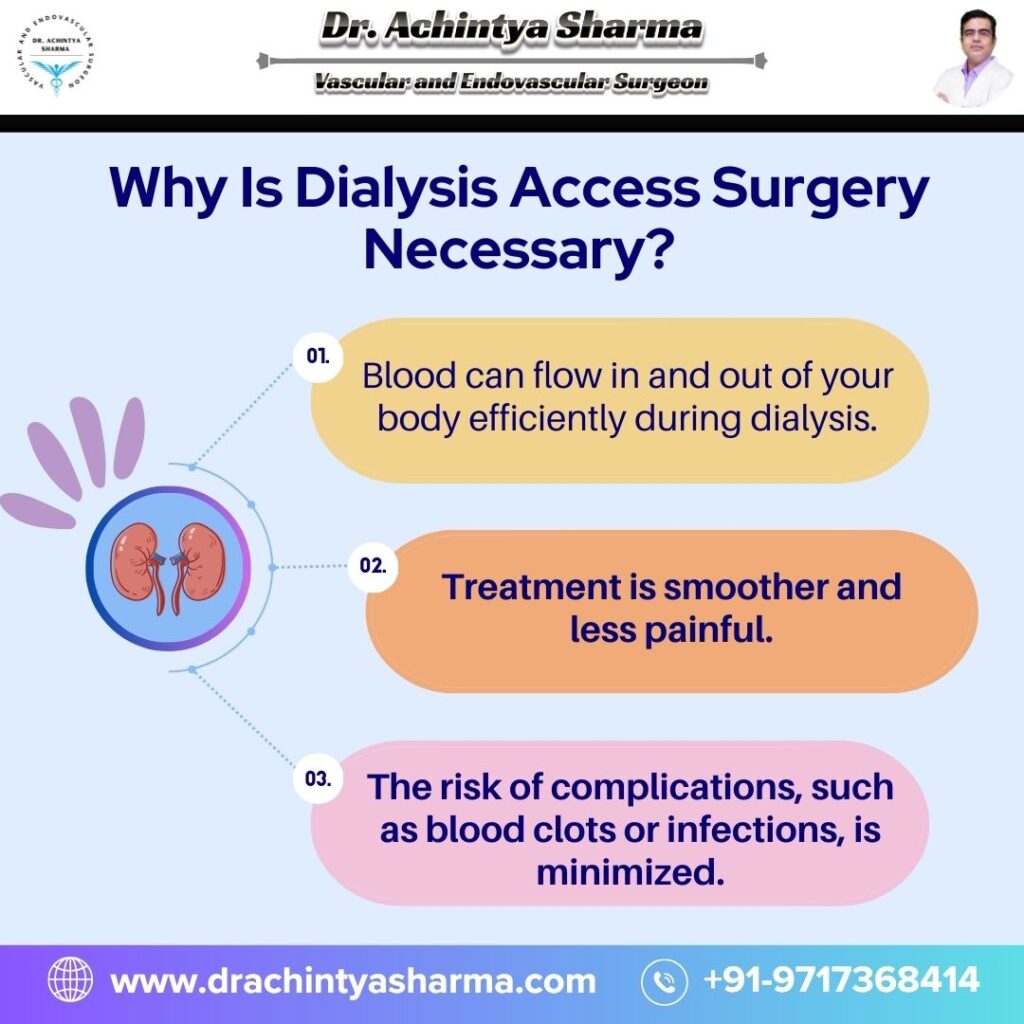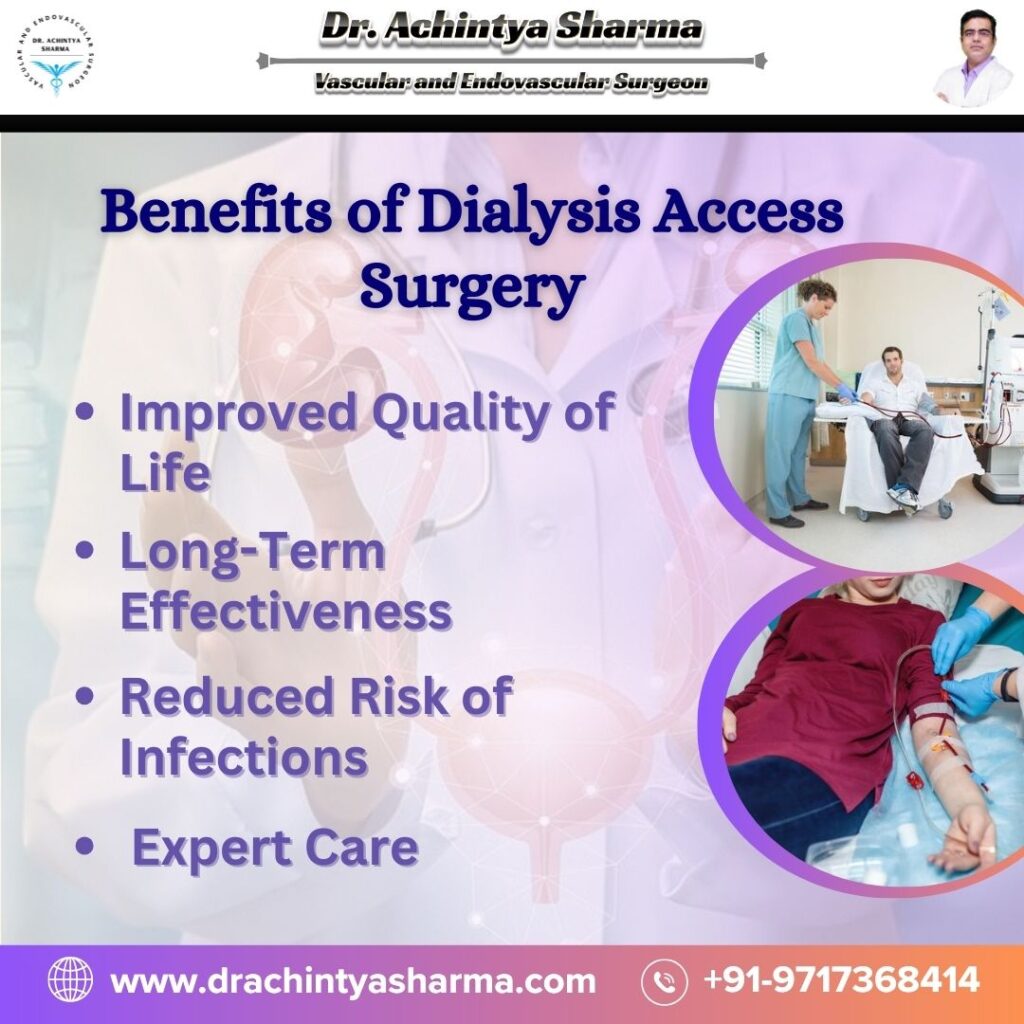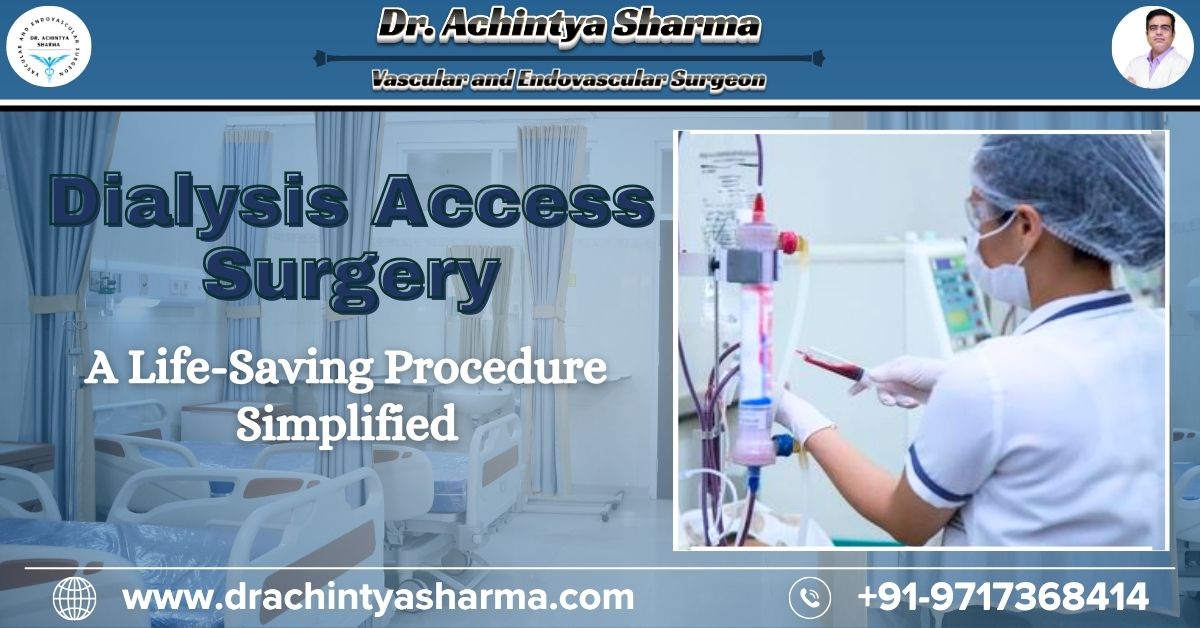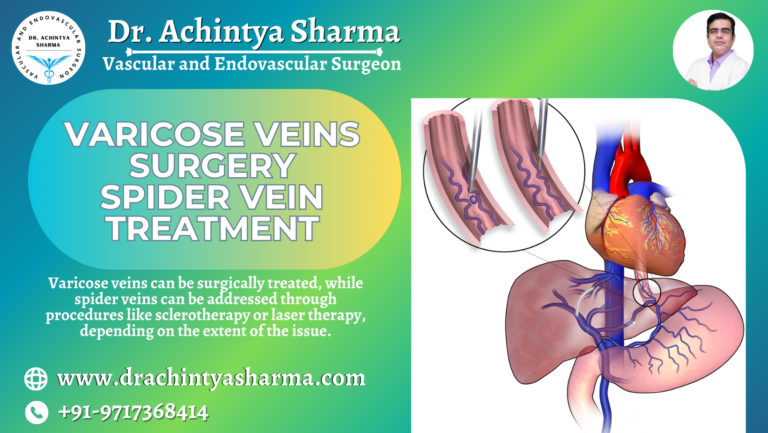When it comes to managing chronic kidney disease (CKD) or end-stage renal disease (ESRD), dialysis is often a vital treatment. For dialysis to be effective, having a reliable access point to your bloodstream is absolutely essential. This access ensures that the dialysis machine can efficiently filter and cleanse your blood, helping you maintain better health and manage your condition effectively. Dialysis access surgery is the procedure that creates this critical connection.
Without it, dialysis would not work as intended, making it a life-saving intervention for millions of patients worldwide. In this blog, we’ll delve deeper into what it is, why it is so important, and how it works to improve your quality of life.
Why Dialysis Access Surgery is Crucial
Every year, millions of patients around the globe rely on dialysis for their survival. But did you know that the success of dialysis largely depends on the type and quality of vascular access created during dialysis access surgery? This procedure ensures that the dialysis machine has a secure and efficient way to filter your blood.
Without proper access, dialysis can become less effective and even life-threatening. That’s why consulting a highly skilled surgeon, such as Dr. Achintya Sharma, is crucial for the best outcomes. With years of expertise in vascular and endovascular surgery, Dr. Achintya Sharma is a trusted name in dialysis access procedures.
What Is Dialysis Access Surgery
Dialysis access surgery involves creating a site in your body to allow easy connection to the dialysis machine. The three main types of access are:
- Arteriovenous Fistula (AV Fistula): This is a connection between an artery and a vein, often in the arm. AV fistulas are considered the gold standard because they last longer and have fewer complications.
- Arteriovenous Graft (AV Graft): When veins are not strong enough, a synthetic tube connects the artery and vein, serving as the access point.
- Central Venous Catheter: This temporary option is used when immediate dialysis is required. However, it’s prone to infections and is not recommended for long-

Why Is It Necessary?
Dialysis access surgery ensures that:
- Blood can flow in and out of your body efficiently during dialysis.
- Treatment is smoother and less painful.
- Proper care and management minimize the risk of complications, such as blood clots or infections.
By choosing an expert like Dr. Achintya Sharma, patients can rest assured that the procedure is performed with precision and care, reducing the chances of complications.
Who Needs It?
Patients diagnosed with chronic kidney disease or end-stage renal disease who require regular dialysis are candidates for this surgery. If you’re in the early stages of chronic kidney disease (CKD), consulting a vascular surgeon can help plan for the future.
Benefits of Dialysis Access Surgery:

1. Improved Quality of Life
Dialysis access surgery allows for more efficient dialysis sessions, leading to better overall health and well-being. With an AV fistula or graft in place, patients often experience fewer interruptions during their treatment.
2. Long-Term Effectiveness
AV fistulas and grafts are designed for long-term use. With proper care, they can last for years, reducing the need for repeated surgeries.
3. Reduced Risk of Infections
Unlike central venous catheters, AV fistulas and grafts have a significantly lower risk of infections, ensuring safer dialysis sessions.
What could be The Next Step:
If you or a loved one is facing dialysis, don’t delay in addressing the need for proper vascular access. Here’s what you should do:
1.Consult a Specialist:
Schedule a consultation with a vascular surgeon like Dr. Achintya Sharma to discuss the best type of dialysis access for your condition.
2.Prepare for Surgery:
Follow your doctor’s instructions to prepare for dialysis access surgery. This may include undergoing imaging tests and making lifestyle adjustments.
3.Post-Surgery Care:
After the procedure, keep the access site clean and avoid heavy lifting to ensure proper healing. Regular check-ups with your surgeon will help monitor the access point and prevent complications.
FAQs
1. How long does it take to recover from dialysis access surgery?
Recovery times vary depending on the type of access created. For AV fistulas, it may take 6-8 weeks to mature before use. Patients can often use AV grafts within 2 weeks.
2. What are the risks associated with dialysis access surgery?
While complications are rare, potential risks include infection, blood clots, and poor blood flow. Choosing an experienced surgeon like Dr. Achintya Sharma can minimize these risks.
3. How do I care for my dialysis access site?
Keep the area clean, avoid heavy lifting, and report any signs of infection or poor blood flow to your doctor immediately.
Conclusion
Dialysis access surgery is more than just a medical procedure; it’s a lifeline for individuals with chronic kidney disease or end-stage renal disease. By choosing the right type of vascular access and entrusting your care to a seasoned professional like Dr. Achintya Sharma, you’re taking a significant step toward improving your health and quality of life.
Don’t wait until it’s too late. Early planning and expert guidance can make all the difference in your dialysis journey. Reach out to Dr. Achintya Sharma today and ensure that your dialysis access surgery is in the best hands.




